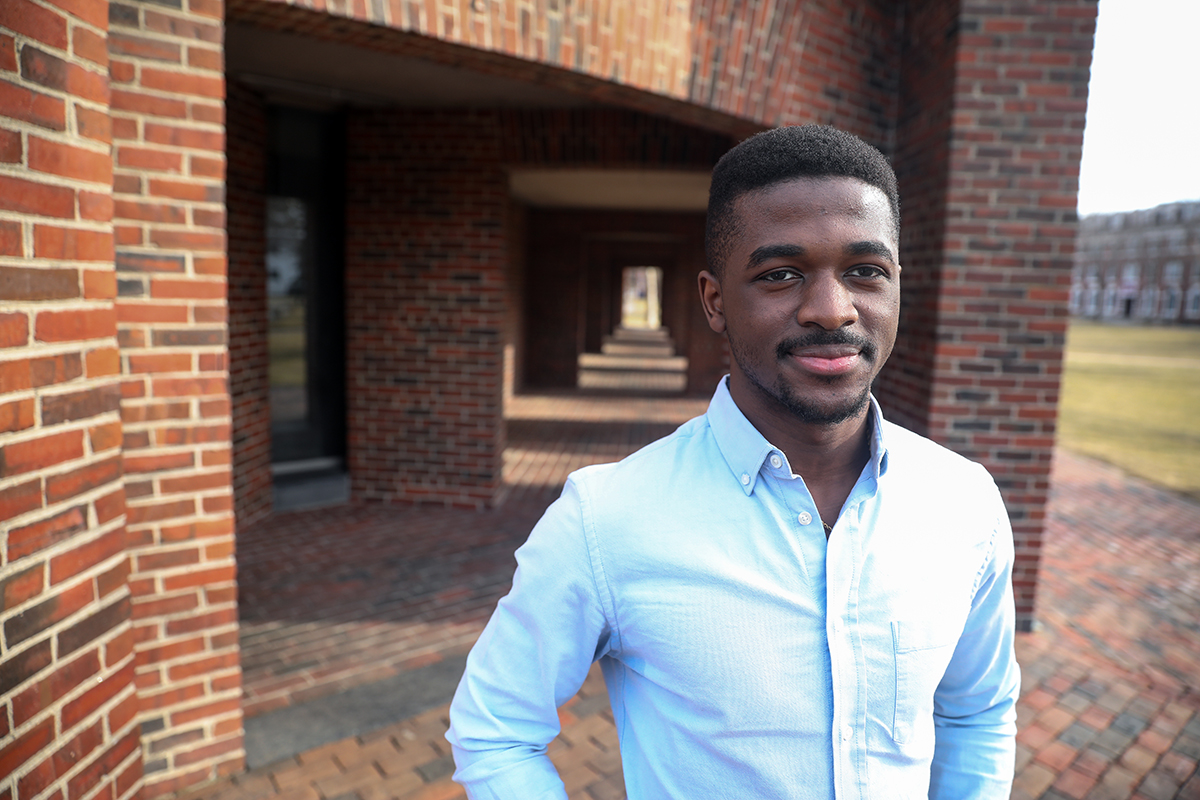Louis Mukama: Earth Keeper

Exonian thinking globally and acting locally to improve the health of our planet.
Louis Mukama ’21 has seen plenty in his short life of how humans treat — and mistreat — the planet.
He spent his early childhood living in a slum in his native Lusaka, Zambia, then moved to a rice farm in the Zambian countryside before emigrating to Chicago.
“In Lusaka, a block away from my house was a landfill,” Mukama says. “I still don’t know where all the stuff came from, but when it would rain, the streets would flood and the garbage would come out on the streets. For some reason, somebody used to dump toys in the landfill and even though my parents told us not to go there, my friends and I would always go there and forage for toys.”
Thinking globally
On the farm, his family ate what it grew. Mukama was free to roam the woods and connect with nature. Chicago, where the family moved in 2011, presented an extreme opposite: urban life with very little time spent outdoors. “My routine was basically: go to school, come back home, go to school, come back home, and I never got to interact with my environment,” he says.
These disparate experiences have left a mark. “I’ve had the chance to live in a lot of different places and see the many ways in which people are attracted to nature and how they take care of their environment or don’t take care of their environment,” Mukama says. He has come to appreciate the cause of environmental justice and understands that where you live and what financial means you have affect how much pollution you experience every day.
“We might all want to address a problem and do our part,” he says, “but we don’t have the same means to help the issue, or some people don’t even have the choice on how they can choose to live.”
Acting locally
Since coming to Exeter as a prep nearly three years ago, Mukama has sought ways to help educate his classmates. He joined the Environmental Action Committee and became an environmental proctor — E-proctor — to instill sustainable habits in his Soule Hall dorm mates. The E-proctor program began informally in the 1990s and was revived in 2003 to become part of the school’s student-driven sustainability effort. More than 60 E-proctors are chosen through an application process to work with their dorm mates and classmates to encourage composting, energy savings, recycling and waste reduction.
Some students need a little more motivation than others. Mukama held a successful competition in Soule Hall, splitting the dorm in half to see who could reduce their paper-towel use more. He and his fellow E-proctors helped spearhead a composting effort in each dorm, urging students to separate compostable material from their recycling and trash. E-proctors also led an effort to collect gently used clothes for a local clothing drive. And they generally serve to remind their dorm mates that their daily decisions and actions will have a long-term impact on the planet they will inherit. When the message comes from their peers — rather than just being another rule to follow — students are more engaged, Mukama says.
“I feel like sometimes it’s daunting to realize how big an issue this is,” he says. “To wonder, ‘How much can I do?’ But change does start on a small scale, and if we can change a peer’s mind or reduce waste by even a small proportion, then I do find that fulfilling and I’m happy to continue with that.
“It all starts right here, right?”
— Patrick Garrity